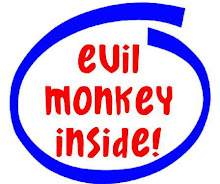 The King of "Space Age Bachelor music" is here!!! WHO????? Yes, sounds crazy. Esquivel, billed himself with a single name, actually enjoyed a long and varied career, of which his space age pop recordings were only a portion. Born in a small Mexican village, the pianist became a popular performer on a Mexican radio station, and studied briefly at Juilliard in New York.
The King of "Space Age Bachelor music" is here!!! WHO????? Yes, sounds crazy. Esquivel, billed himself with a single name, actually enjoyed a long and varied career, of which his space age pop recordings were only a portion. Born in a small Mexican village, the pianist became a popular performer on a Mexican radio station, and studied briefly at Juilliard in New York. Later (too much later) In the mid-'90s, Juan Garcia Esquivel enjoyed one of the most unexpected resurgences of popularity and hipness in the annals of 20th-century pop. The composer and arranger skirted the lines between lounge music, eccentric experimentalism, and stereo sound pioneer in the late '50s and early '60s on a series of albums aimed at the easy listening market. Both cheesy and goofily unpredictable, these records were forgotten by all for decades. With the space age pop exotica revival of the mid-'90s, however, Esquivel was not just being rediscovered, but was being championed as a cutting-edge innovator by certain segments of the hipper-than-thou alternative crowd.
This album has several musical and historical significant aspects, making it Esquivel's most desirable. First, it is one of only three or so truly great RCA Stereo Action ("The Sound Your Eyes Can Follow") albums. The music is deliberately scored for channel separation, but there is more to the stereo gimmickry than the arrangements. Not counting layered-track (multi-dubbing) efforts, Latin-Esque was the first album recorded with total stereo separation - two separate orchestras in two separate studios performed, connected by headphones. The results are fairly fantastic. This album was essential to the renaissance of Esquivel's popularity in the 1990's.
Go Go Go!!!!
Password: evilmonkey














No hay comentarios:
Publicar un comentario